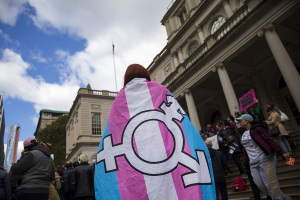Security and reconciliation: How Canadian dioceses are responding to wave of church arsons

Dioceses in Canada are responding in various ways to the wave of church arsons and attacks following the discovery of hundreds of unmarked graves at multiple religious, residential schools that once aimed to reeducate indigenous children.
As several Canadian churches have been physically attacked over the summer, The Christian Post reached out to dioceses in Canada for their perspectives on what is happening and what measures they are taking in response.
Many churches are taking action to increase security for their buildings while some are working to foster reconciliation.
Security
The Roman Catholic Diocese of Nelson, based in British Columbia, has seen four mission churches burned down that were located in First Nations Reserves and two other churches vandalized with paint.
Bishop Gregory Bittman told The Christian Post via email that the regional body has “suggested to its parishes consider having extra security for our churches, either professional or volunteer.”
“It is regrettable that more suffering and harm is being inflicted on people, especially the indigenous people by these acts of violence," the bishop stated. "It is no solution, and only perpetuates the cycle of violence."
Bittman said he believes government officials should take a more active part in stopping the apparent uptick in church violence, stating that “they could do more as they have done with other churches or institutions.”
In May, the remains of 215 children were found buried at a property on which the Kamloops Indian Residential School stood in British Columbia, which closed its doors in 1978.
The school was affiliated with the Catholic Church and was part of a national system overseen by government and religious authorities to assimilate indigenous communities.
Soon after, an additional 751 unmarked graves were found near the former Marieval Indian Residential School in Saskatchewan, which had also been under Catholic Church administration.
Following these revelations, dozens of churches have suffered from arson or vandalism, especially those in western indigenous territories.
The Roman Catholic Archdiocese of Regina, located in the southern part of Saskatchewan, has yet to experience any arson or vandalism during the summer.
Nevertheless, Regina Archdiocese spokesperson Lisa Polk told CP that the parishes are making preparations to double-check or expand upon their security measures.
“All parishes have completed an Arson Risk Assessment and Church Safety Checklist and have taken steps to reduce the risk of arson and vandalism,” she explained.
“Some have initiated or increased security patrols of their property during the overnight period. A couple of parishes have added video surveillance cameras to their security systems.”
Although largely impacting Catholic church buildings, Anglican and Orthodox congregations have also been targets during the summer.
Truth and Reconciliation
Although many churches and dioceses are concerned about the apparent uptick in arson attacks since the residential schools report, many want to focus on racial reconciliation labors.
Catherine Pate, director of communication for the British Columbia-based Anglican Diocese of Islands and Inlets, told CP that churches in her diocese are more focused on “doing the work of reconciliation and decolonization.”
“We, in this diocese, are not focused on the spate of vandalisms, but are instead focusing our time and energy on the reconciliatory work we need to do and are doing as a church,” said Pate.
Pate viewed this as “the true Gospel work we are called to” and directed CP to a 2015 report created by the Truth and Reconciliation Commission of the University of Manitoba.
Among the report’s 94 “calls to action,” some spoke of what churches, namely those tied to the residential schools, should do in response to the abuses of indigenous Canadians.
These include calling on Pope Francis to issue an apology “for the Roman Catholic Church’s role in the spiritual, cultural, emotional, physical, and sexual abuse of First Nations, Inuit, and Métis children in Catholic-run residential schools." The report calls for churches to dialogue with indigenous religious leaders and help fund projects to benefit native populations.
The Catholic Archdiocese of Regina directed CP to a statement by Archbishop Donald Bolen released in June. He spoke about the church regional body’s own Diocesan Committee for Truth and Reconciliation.
Formed under Archbishop Bolen, the committee comprised both indigenous and non-members, which “took up the Calls to Action addressed to churches.”
“We tried many things. Some worked and some did not,” stated Bolen. “But the Committee for Truth and Reconciliation proved an effective way to listen to many different Indigenous voices, and to learn to walk together.”
“We do not want to suppress or hide from the suffering of the past, nor to overlook or dismiss the many ways that Indigenous people in the present continue to carry the heavy burdens of the legacy of residential schools. … We desire to turn our apologies into concrete plans of action oriented to justice, healing and reconciliation.”
Despite the apparent wave of anti-church violence, the Royal Canadian Mounted Police had no plans as of late July to form a national task force to address the issue, according to the Jesuit news publication America Magazine.
“While we are certainly sensitive to recent events, we will allow the evidence to guide us in each of the investigations and will not speculate as to possible motives,” stated Staff Sgt. Janelle Shoihet of the RCMP in British Columbia, as reported by America Magazine.
“Our officers have been working closely with indigenous leaders and local church administration to discuss possible options with respect to crime prevention.”



























